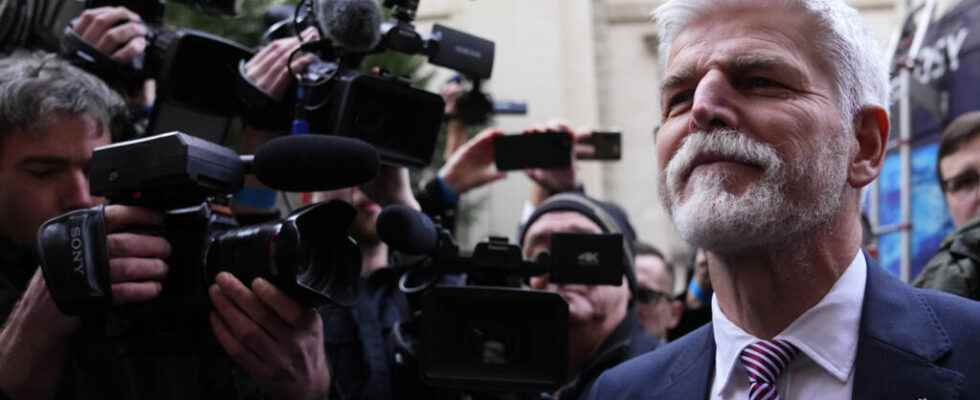He promised if elected to ” restore order in his country and to bring it closer to NATO and the European Union. Former communist, and former soldier, Petr Pavel is in a good position to become at 61 the next president of the Czech Republic. Arrived at the top of the first round on January 14, he will face in a week the former Prime Minister Andrej Babis.
On the evening of the first round, on January 14, the results put him in an ideal position: 35.4% of the vote, just ahead of former Prime Minister Andrej Babis. Benefiting a priori with a favorable report of votes, Petr Pavel does not hide his satisfaction and already sees himself at the head of the second round which will take place on January 27th. “ The challenge of this campaign will be to know if there will be chaos in our country, or the return to the rule of lawhe then proclaims, et whether we will be a trustworthy country for our allies. » A martial statement for this former “para” who spent his entire career in the Czech army.
” He rose through the ranks of the army to the post of chief of staff, which he held between 2012 and 2015 “, explains Jana Vargovčíková, researcher at the National Institute of Oriental Languages and Civilizations. ” Then, he was proposed by the Czech government to be chairman of the NATO Military Committee, a position he held for three years before retiring in 2018. At the time, rumors were already circulating about his intentions to run for president. »
► To listen also: Presidential in the Czech Republic: “An uncertain second round but Pavel is favorite”
A “war hero” decorated by France
Among his feats of arms, there is this act of bravery, in 1993, during the war in Bosnia. Then an officer in the Czech army, Petr Pavel manages to evacuate a unit of French soldiers besieged by Serbian and Croatian forces. An episode that he continues to highlight during the election campaign. But in the past of the “general”, as he is nicknamed in his country, there is also a much less glorious episode. ” It is above all his military past before 1989 that is discussed: his membership of the Communist Party and his desire to become a military intelligence agent at the end of the 1980s, therefore very shortly before the fall of the Communist regime. »
A troubled past that Petr Pavel attributes to the context of the time – according to him, it was impossible to have a career in the army without showing loyalty to the regime. ” He succeeded in minimizing the weight of this factor in the choices of voters, who are nevertheless historically anti-Communist.notes the lecturer at Inalco. And he succeededn acknowledging his mistake, publicly apologizing and confessing this past very early in the campaign. »
► To read also: Petr Pavel, Danuse Nerudova, Andrej Babis, the three favorites of the Czech presidential election
An “anti-Babis” front
In the second round, on 27 and 28 January next, Petr Pavel will face former Prime Minister Andrej Babis, a controversial figure accused of populist drift. One ” danger to democracy in the eyes of a number of political parties, all of which will rally behind the former soldier. ” Pavel is the candidate of all those who want at all costs to avoid Babis becoming president », explains Ondrej Horky Hluchan, researcher at the Institute of International Relations in Prague.
Babis is not considered as populist or illiberal as Viktor Orban, the Hungarian prime minister. But it is still perceived as posing a risk to the constitutional order. The first-round candidates who were eliminated want to avoid the mistake that was made five years ago, when President Milos Zeman was elected against a candidate more representative of liberal democracy. He had not obtained enough support between the two rounds, a mistake that the political parties hostile to Babis do not want to repeat. We can therefore expect a massive rally around the candidacy of Petr Pavel.
The polls between the two rounds seem, in fact, favorable to the former soldier. But his election is far from a foregone conclusion, as his opponent could take advantage of galloping inflation and the economic crisis the country is going through to galvanize his base electorate. An older, more rural and more disadvantaged electorate than that of Petr Pavel.
